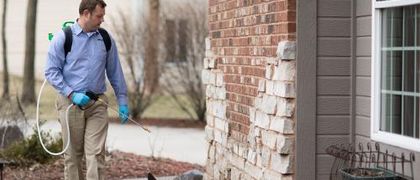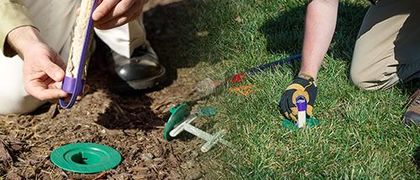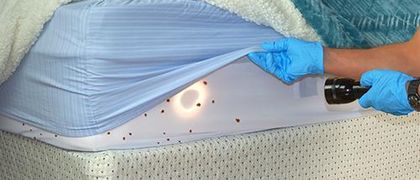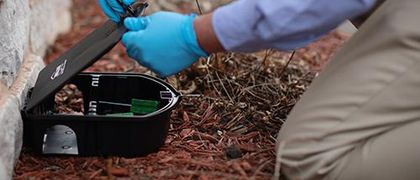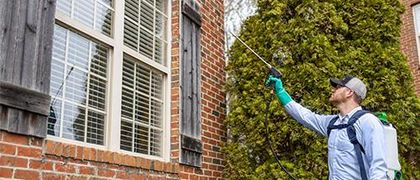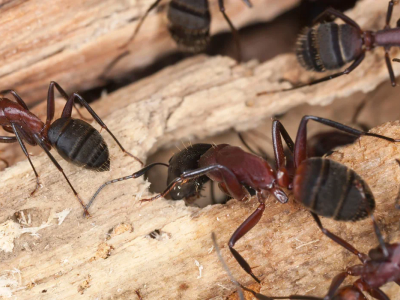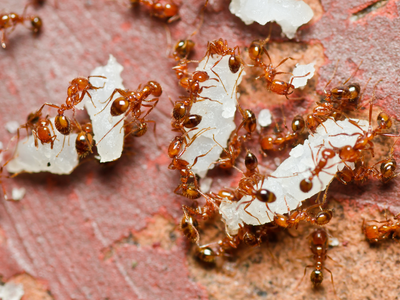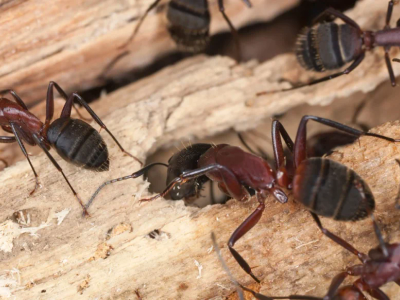When mosquitoes bite, they may leave behind more than an itchy welt. Infected mosquitoes may transmit viruses that can make you sick. In this article, our local pest control company will explain how these biting pests become carriers and transmitters of illness, identify the common mosquito-borne viruses in Nebraska, and share tips to help residents reduce their chances of acquiring a mosquito-borne virus.

How mosquitoes spread viruses
Before we explain how mosquitoes acquire and transmit viruses to people and animals, it’s important to note that not every single mosquito flying around Nebraska is infected. In fact, male mosquitoes do not bite and, therefore, cannot transmit disease to people or animals.
Female mosquitoes will feed on plant nectar, but to produce eggs, they must have a blood meal. If they bite a person or animal already infected with a virus, they become vectors and will go on to spread illness to other people and animals when they bite.
Common mosquito-borne viruses in Omaha & Across Nebraska
In Omaha, Bellevue, and Elkhorn, as well as across the Cornhusker state, there are three endemic mosquito viruses that residents should be aware of.
West Nile virus
First reported in Nebraska in 2002, the West Nile virus (WNV) is the leading cause of mosquito-borne disease in the country. While most people infected with WNV do not feel sick, it is estimated that 1 out of 150 infected people will experience a more severe illness that could prove fatal. Symptoms of West Nile virus include:
- Fever
- Headaches
- Sore throat
- Muscle and joint pain
- Abdominal pain
- Nausea, vomiting, and diarrhea
- Rash
- Swollen lymph nodes
- Confusion or change in the ability to think clearly
- Loss of consciousness or coma
- Muscle weakness
- Stiff neck
- Weakness of one arm or leg
Those last five symptoms may indicate a more serious problem. Prompt medical attention is highly recommended. This virus can spread to horses and other animals.
St. Louis encephalitis
A viral disease spread by infected mosquitoes, St. Louis encephalitis (SLE) can cause serious illness, including life-threatening complications. According to Nebraska DHHS, cases of SLE are rarely reported in our state, but surveillance records indicate that the virus is still circulating in mosquitoes in some parts of the state.
Fever, headache, dizziness, nausea, and fatigue may present in mild cases; more severe symptoms include:
- Inflammation of the brain (encephalitis)
- Confusion or disorientation
- Occasional convulsions
- Neck stiffness
- Coma
- Paralysis
Hospitalization may be required in more severe cases so reach out to your doctor or seek immediate medical attention if you have any concerns.
Western equine encephalitis
Western equine encephalitis (WEE) is a severe viral illness spread by mosquitoes. It affects humans and horses. Although rare in the U.S., most cases occur west of the Mississippi River.
Mild signs of WEE include:
- Fever
- Chills
- Muscle aches
- Joint
- General ill feeling
Severe signs and symptoms include:
- High-grade fever
- Headache
- Irritability
- Restlessness
- Drowsiness
- Loss of appetite
- Vomiting
- Diarrhea
- Bluish discoloration of skin
- Convulsions
- Coma
Seek medical attention right away if you experience symptoms of WEE.
How to protect your family from mosquito bites and illness
To reduce the risk of being bitten by a mosquito or acquiring a mosquito-borne virus, the Miller Pest & Termite team recommend the following mosquito prevention tips:
- Use screens on doors and windows.
- Empty discarded tires, wheelbarrows, buckets, tarps, planters, and other items that collect rainwater at least once a week.
- Fill in holes in the lawn and other depressions around your yard if water can accumulate.
- Cover trash cans with lids.
- Haul away yard debris.
- Check to see if gutters are free of leaves, twigs, or other debris.
- Maintain your swimming pool and/or hot tub.
- Repair outdoor spigots if they’re constantly dripping.
- Mow your lawn routinely.
- Cut back tall grasses and overgrowth.
- Thin out shrubs, bushes, and other landscape elements.
- Do not overwater plants or lawns.
Additionally, we recommend wearing long-sleeved shirts, pants, and covered footwear and applying insect repellent any time you are outdoors when mosquitoes are active.
Consider signing up for seasonal mosquito control
At Miller Pest & Termite, we offer seasonal mosquito control in Omaha and throughout our multi-state service area that are designed to significantly reduce the mosquito population during the months these pests are most active – May through September.
When a homeowner signs up with us, we start by conducting a mosquito inspection to identify mosquito hotspots - areas where mosquitoes rest and breed. Once we have identified these areas, we use a mosquito fogger to target them. From then on, we will come out once a month until September to perform a mosquito treatment. This treatment will keep these biting pests away and disrupt their breeding process.
We also offer one-time mosquito treatments for special events
In addition to seasonal mosquito control outlined above, our locally owned and operated pest control company also offers one-time mosquito treatments for special events. That’s right, when you contact us for help protecting your guests from mosquito bites, we will treat your venue 24-48 hours prior to the event. By the time your party is underway, mosquito activity should be almost nonexistent.
Contact us for help getting rid of mosquitoes
Protect yourself from mosquitoes this summer with the best mosquito control from Miller Pest & Termite. Reach out today!


Get Help Now!





